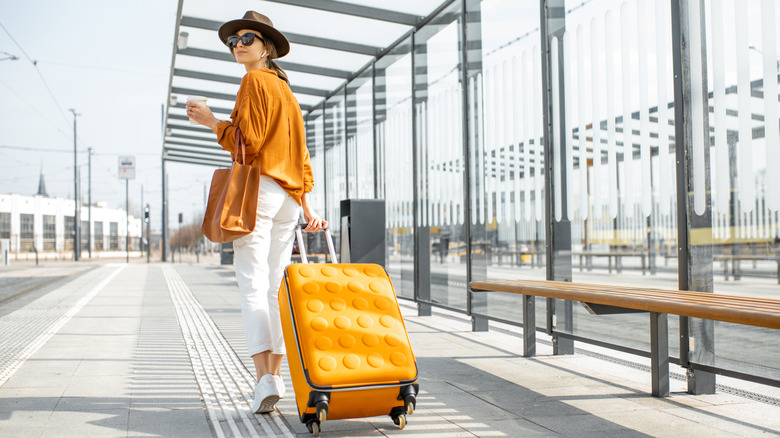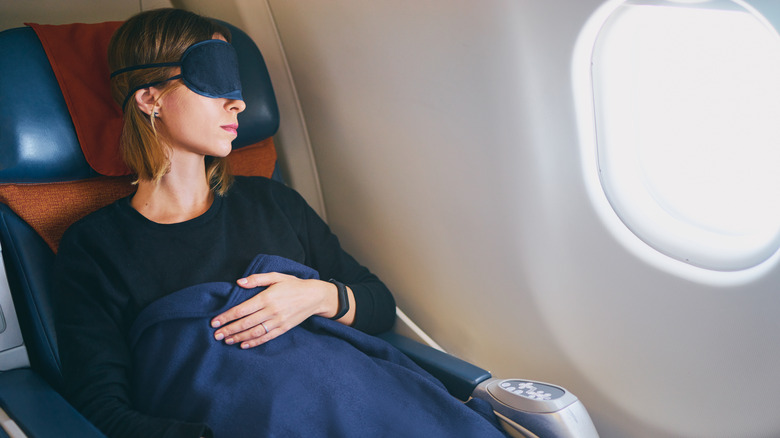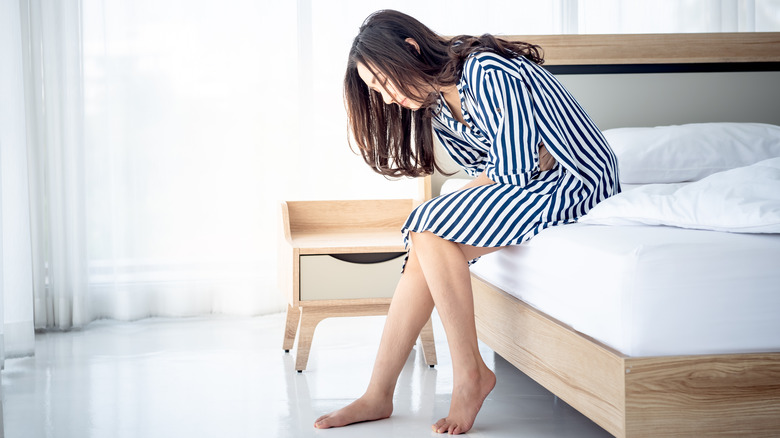
Ross Helen/Shutterstock
By Andra Picincu/Sept. 7, 2021 9:34 pm EDT
Did you know that traveling affects your hormones, gut flora, and energy levels? These subtle changes are largely related to your body’s internal clock, or circadian rhythm. “Sleep deprivation — even just changing one or two time zones — can really mess with your circadian rhythms. And your circadian rhythms can also influence your internal hormone levels,” Dr. Donnica Moore told Insider. Stress plays a role, too. Traveling is supposed to be a relaxing experience, but it can still take a toll on your body. Just think about all the planning that goes into it! Both physical and emotional stress affects the hypothalamus, messing up your hormones, explains Dr. Moore.
Traveling to another country can also throw your gut out of whack, notes the American Physiological Society. Your body’s internal clock influences gut movements, meaning that any changes in your circadian rhythm can affect the microbiome. As a result, you may experience diarrhea, constipation, food cravings, or diminished appetite. On top of that, travelers are exposed to new types of bacteria that can interact with their own gut bacteria, points out WebMD.
When you’re traveling, you may also see some changes in your period. Your menstruation may be irregular, shorter, or more painful. “Travel involves stress for many women. Stress can alter ovulation and the well-orchestrated, accompanied hormonal changes entailed,” says Dr. Alyssa Dweck (via Insider). But that’s just one piece of the puzzle. Even a short vacation can impact the hormones that regulate ovulation, sleep, and appetite.
Traveling disrupts your body's internal clock and affects hormone production

Many women experience missed periods, heavy bleeding, or shorter menstrual cycles while on a trip. These changes are more likely to occur when you’re traveling across time zones. Any disruption in your sleep-wake cycle can affect melatonin levels, explains Dr. Anita Mitra (via Quartz). Melatonin, the so-called sleep hormone, regulates your internal clock. When your internal clock is out of whack, it can interfere with hormone production, digestion, and other biological processes (via National Institute of General Medical Sciences).
The circadian rhythm influences estrogen and progesterone levels, according to The Hewitt Fertility Center. These hormones play a key role in ovulation, so even the slightest imbalance can affect your period. You may also experience mood swings, fatigue, stomach upset, and decreased appetite. Try not to panic if you’re having a late period, spotting, or tummy pain. The changes you’re going through are perfectly normal. Your body needs time to adjust to its surroundings.
The stress of traveling can throw off your period

As mentioned earlier, travel also increases stress. You have to pack your luggage, create an itinerary, find accommodations, and more. The simple act of planning a trip can skyrocket the stress hormone cortisol levels, affecting your hormones — and your period. “We don’t fully understand the brain-uterus connection, but we know that the brain is the first link in the hormonal chain that produces a menstrual cycle,” said Dr. Anita Mitra in an interview with Quartz.
Your diet plays a role, too. Chances are, you’ll try new foods or drink more than usual while on a vacation. These small changes can throw off your hormones and mess up your period, explains The Hewitt Fertility Center. The best thing you can do is to maintain healthy eating habits and stick to a sleep schedule even when you’re away from home. Most importantly, take it easy and listen to your body.
To stay on the safe side, bring a box of tampons or pads with you. Ideally, start taking a daily probiotic for at least one week prior to your departure. “Probiotic bacteria can squeeze out any pathogenic bacteria your body gets exposed to — like bacteria that cause traveler’s diarrhea, antibiotic diarrhea, yeast infections, [and] possibly even food poisoning,” Dr. Steven Peikin told WebMD. He also recommends taking probiotics daily for one week after you return home.
Source: Read Full Article